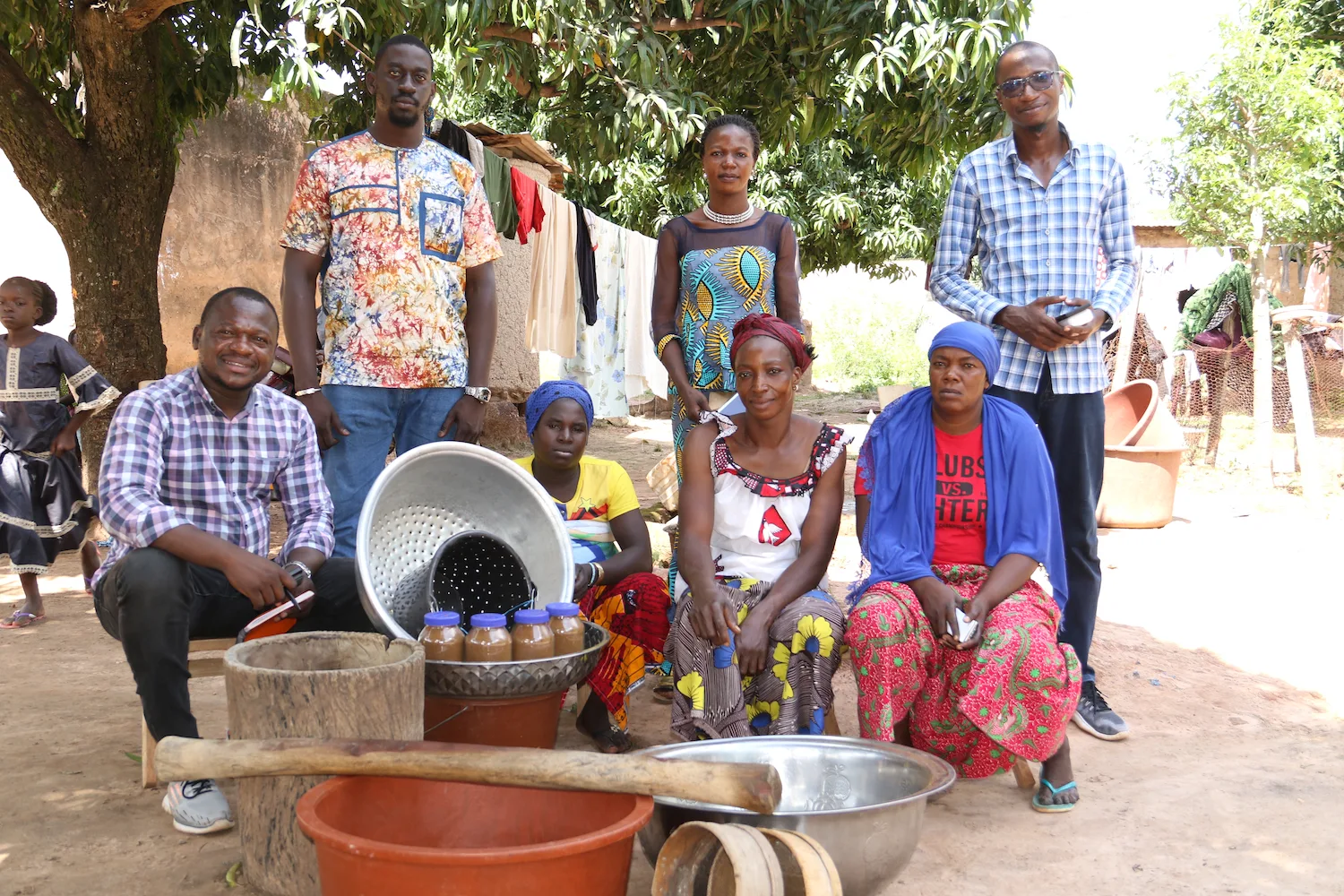Livelihoods for peace

Interpeace’s portfolio is increasingly geared towards the integration of livelihoods into peacebuilding programming. This in response to continued demands from communities who express the needs for further investment in livelihoods, both to meet more immediate basic needs and to address economic drivers of conflict such as land and other resource.
In 2023, in addition to deepening its partnerships with the FAO and the International Labour Organization (ILO), Interpeace’s programmes in several contexts enhanced livelihood opportunities:
Burkina Faso/Mali border – A support system for income-generating activities was established and engaged 60 participants (35 women and 25 young people (women and men)), to set up activities such as beekeeping, farming, livestock breeding and soumbala production.
Burkina Faso/Côte d’Ivoire border – Building on participatory action research on the links between conflict and a persistent water crisis, local validation workshops allowed for the identification of key entry points to reduce conflict and enhance water access and improve livelihoods. The community action plans developed through the process are being supported by the programme.
Burundi – The government has required that all initiatives contribute to the government’s own development agenda. Here, Interpeace’s programming has been providing business development and management skills training to groups engaged in peacebuilding efforts in their communities. In one project, small-scale businesses have emerged that participants have funded themselves. In another project, communities have developed action plans with a livelihoods component.
Côte d’Ivoire – Interpeace’s project to prevent political violence and strengthen social cohesion through dialogue and citizen collaboration in Côte d'Ivoire (PREDIA) has developed two peacebuilding and livelihood axes. The first has enabled the identification and implementation of income-generating activities that are managed by members of community cohesion teams (known as cadres de collaboration). The second was the rehabilitation or construction of infrastructure in communities, to support efforts to prevent political violence and promote social cohesion in the run-up to elections. To this end, a participatory consultation process, accompanied by an engineer (on a consultancy basis) for the technical feasibility dimensions, was carried out in 2023 to identify and take forward infrastructure rehabilitation and construction.
Great Lakes – Young innovators from Bukavu in the Democratic Republic of the Congo and from Burundi are designing a joint project to take advantage of Lake Tanganyika to improve the livelihoods of cross-border communities and strengthen regional connections. The initiative is called “Wet zone for peace in the Great Lakes region”, and the young people involved in it are elaborating a business plan.
Kenya – Interpeace organised a visit of external development stakeholders to Elgeyo Marakwet county to explore opportunities to build on the peacebuilding gains over the previous two years through inclusive investments that consolidate growing cohesion between ethnic communities in the region. This first visit generated a self-developed multistakeholder initiative signed by approximately 80 actors to support the provision of services ranging from counselling to banking and financial services. In addition, the programme is exploring opportunities to enhance food security through expanded poultry farming, fodder production and beekeeping.
Rwanda – Interpeace programming focused on a three-way integration of MHPSS, peace/cohesion building and livelihoods. Building on past efforts, in 2023, 18 businesses were supported: nine for adults and nine for youth.